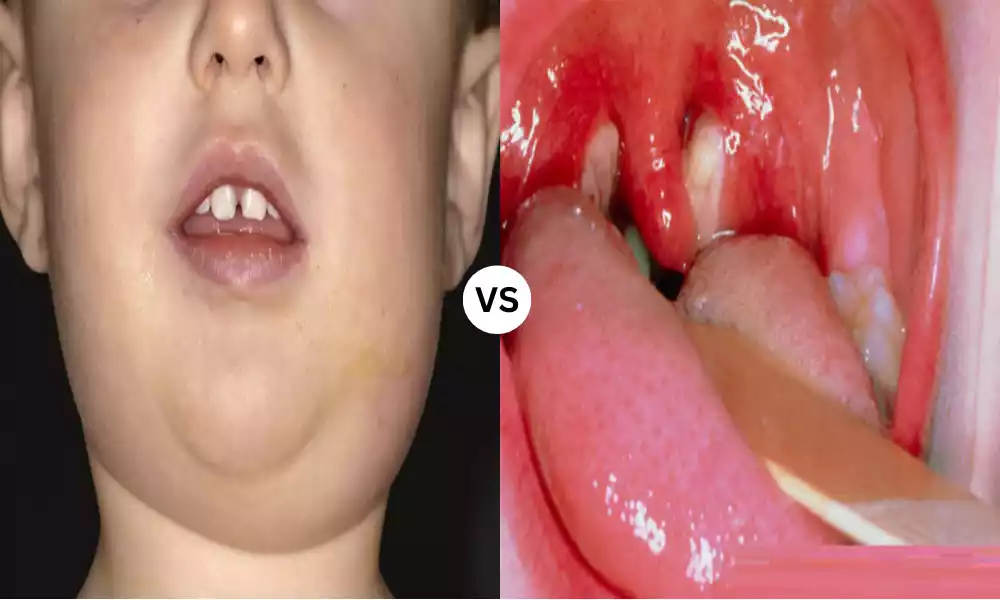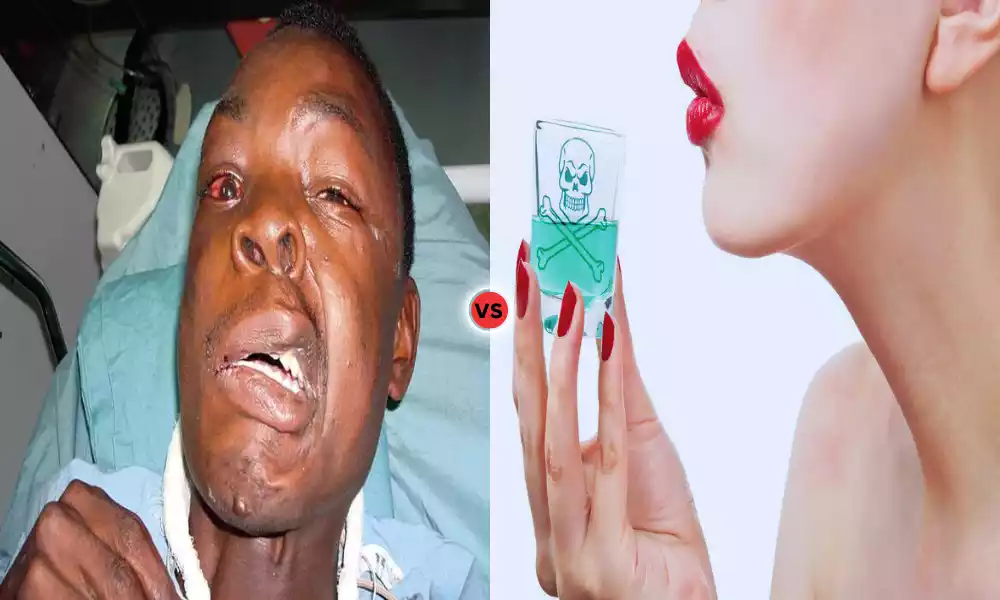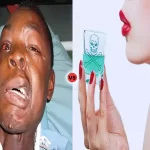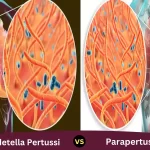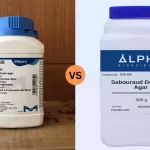Mumps and Glandular Fever are two contagious viral infections that impact the salivary glands and lymph nodes. Mumps is caused by the mumps virus and is known for causing gland swelling and discomfort. Glandular Fever, on the other hand, is primarily caused by the Epstein-Barr virus (EBV) and often leads to severe fatigue, sore throat, and swollen lymph nodes. Both infections are transmitted through respiratory droplets and close personal contact. Understanding their causes and symptoms is crucial for effective management and prevention.
Mumps

Mumps is a contagious viral infection caused by the mumps virus, which belongs to the Paramyxoviridae family. It primarily affects the salivary glands, particularly the parotid glands located on either side of the face near the ears. Mumps is characterized by swelling and tenderness of the parotid glands, leading to a puffy or swollen appearance.
The virus can also cause various other symptoms and complications beyond salivary gland involvement. Mumps is transmitted through respiratory droplets from an infected person, typically through coughing, sneezing, talking, or sharing contaminated items. Vaccination, specifically the measles, mumps, and rubella (MMR) vaccine, has significantly reduced the incidence of mumps in many parts of the world.
Causes of Mumps
Mumps is caused by the mumps virus (Rubulavirus), specifically the paramyxovirus type 1. It is a contagious virus that primarily affects humans. The virus spreads from person to person through respiratory droplets, which are released into the air when an infected person coughs, sneezes, talks, or even breathes. These droplets can then be inhaled by individuals nearby, leading to infection.
Here’s how mumps can occur in humans:
- Transmission: An infected person releases respiratory droplets containing the mumps virus into the air through activities like coughing, sneezing, or talking.
- Inhalation: People nearby can inhale these infectious droplets, allowing the virus to enter their respiratory system.
- Viral Replication: The mumps virus starts replicating in the respiratory tract, and it can then spread to other tissues and organs.
- Salivary Glands: The mumps virus has a particular affinity for the salivary glands, especially the parotid glands located near the ears. The virus infects the cells in these glands, leading to their inflammation and subsequent swelling.
- Symptoms: As the infected salivary glands swell, it leads to the characteristic puffy appearance around the ears. Other symptoms may include headaches, fever, muscle aches, fever, and fatigue.
- Complications: In some cases, the virus can lead to complications like orchitis (swelling of testicles in males), meningitis, encephalitis, and even hearing loss.
- Immune Response: The immune system responds to the infection by producing antibodies to fight off the virus. This immune response leads to recovery and long-lasting immunity against mumps.
To prevent mumps, vaccination is crucial. The MMR vaccine (measles, mumps, and rubella) is a safe and effective way to protect against mumps. It’s recommended to receive two doses of the MMR vaccine in childhood for optimal protection and to help prevent outbreaks.
Symptoms of Mumps
Here are the common symptoms of mumps:
- Swelling of Salivary Glands: The hallmark symptom of mumps is the swelling and tenderness of the parotid glands, located on the sides of the face, just below and in front of the ears. This can give a puffy or swollen appearance to the cheeks.
- Fever: People with mumps often develop a fever, which can range from mild to moderate in intensity.
- Headache: Headaches are a common symptom and can be caused by the viral infection itself and the body’s immune response.
- Muscle Aches: Muscle aches, also known as myalgia, are common and can affect various parts of the body.
- Fatigue: Many individuals with mumps experience fatigue and a general feeling of weakness.
- Painful Chewing or Swallowing: Due to the swelling of the salivary glands, chewing and swallowing may become painful or uncomfortable.
- Sore Throat: Some people with mumps may develop a sore throat, which is often a result of the inflammation in the throat area.
- Loss of Appetite: The discomfort associated with swollen glands and other symptoms can lead to a loss of appetite.
- Earache: The proximity of the parotid glands to the ears can sometimes cause earache, especially when the glands are swollen.
It’s important to note that not everyone infected with the mumps virus will exhibit all of these symptoms, and the severity of symptoms can vary from person to person. In some cases, individuals infected with the virus might exhibit only mild symptoms or even be asymptomatic. Additionally, complications such as orchitis (testicular inflammation in males), meningitis, and encephalitis can occur, although they are less common.
Glandular Fever
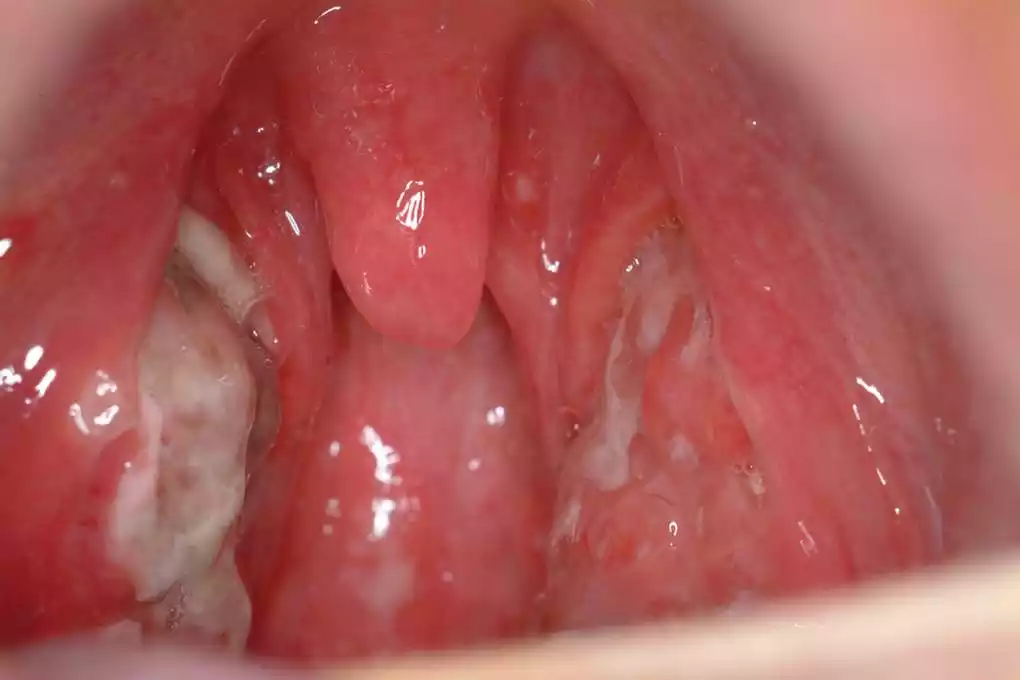
Glandular fever, also known as infectious mononucleosis, is a viral infection caused by the Epstein-Barr virus (EBV), a member of the herpesvirus family. This infection primarily affects lymphocytes, a type of white blood cell, and epithelial cells, which line various body surfaces. Glandular fever is characterized by a range of symptoms, including severe fatigue, sore throat, swollen tonsils, and enlarged lymph nodes.
The virus can also cause fever, malaise, and other flu-like symptoms. Glandular fever is typically spread through close contact with infected individuals, often through the exchange of saliva, hence its colloquial name “kissing disease.” The infection can also be transmitted through sharing personal items like eating utensils or drinking glasses.
Diagnosis of glandular fever often involves clinical evaluation, physical examination, and blood tests to detect specific antibodies associated with EBV infection. Treatment is mainly supportive, involving rest, hydration, and over-the-counter pain relievers. Avoidance of activities that could cause injury to an enlarged spleen, a potential complication of the infection, is important. While antiviral medications are rarely used in the treatment of glandular fever, they might be considered in severe cases.
Causes of Glandular Fever
Glandular fever, also known as infectious mononucleosis, is caused by the Epstein-Barr virus (EBV), a member of the herpesvirus family. Here are the causes of glandular fever:
- Epstein-Barr Virus (EBV): Glandular fever is primarily caused by the Epstein-Barr virus. This virus is highly contagious and can be transmitted from person to person through various means, including:
- Saliva: The virus is commonly spread through direct contact with saliva, which is why it’s often referred to as the “kissing disease.” Sharing utensils, cups, or other items that come into contact with saliva can also transmit the virus.
- Airborne Droplets: Respiratory droplets released when an infected person coughs or sneezes can contain the virus. Inhaling these droplets can lead to infection.
- Close Contact: Being in close contact with an infected person, such as hugging or holding hands, can also facilitate transmission.
- Initial Infection: When a person is exposed to the EBV for the first time, they can become infected. The virus primarily targets and infects B lymphocytes, a type of white blood cell, as well as epithelial cells that line various body surfaces.
- Incubation Period: After exposure to the virus, there is an incubation period during which the virus replicates and begins to cause symptoms. This period can range from around 4 to 6 weeks.
- Activation of the Immune Response: The immune system responds to the EBV infection by producing antibodies to fight the virus. This immune response leads to the characteristic symptoms of glandular fever, such as sore throat, swollen lymph nodes, and fatigue.
- Recovery and Immunity: Once the body’s immune system successfully fights the virus, most people recover from glandular fever. The immune response leaves the person with immunity against future EBV infections.
It’s important to note that while the symptoms of glandular fever can be similar to those of other infections, the presence of certain symptoms, such as an enlarged spleen, may require medical attention and monitoring.
Glandular Fever Symptoms
Glandular fever (infectious mononucleosis) symptoms include:
- Severe fatigue
- Sore throat
- Swollen tonsils
- Enlarged lymph nodes
- Fever
- Headache
- Muscle aches
- Joint pain
- Rash (due to certain medications)
- Loss of appetite
- Swelling around the eyes
- Abdominal pain (mild)
- Recovery can take time due to lingering fatigue.
Comparison Table of Mumps and Glandular Fever
Here’s a comparison table highlighting the key differences between mumps and glandular fever (infectious mononucleosis):
| Aspect | Mumps | Glandular Fever |
|---|---|---|
| Causative Agent | Mumps virus (paramyxovirus type 1) | Epstein-Barr virus (herpesvirus) |
| Transmission | Respiratory droplets, direct contact | Saliva, respiratory droplets, close contact |
| Primary Affected Glands | Parotid glands (salivary glands) | Lymph nodes, tonsils, liver, spleen |
| Common Symptoms | Parotid gland swelling, fever, headache | Severe fatigue, sore throat, fever, swollen lymph nodes |
| Complications | Orchitis (testicular inflammation), meningitis, encephalitis, deafness | Enlarged spleen, hepatitis, jaundice, rash, rare neurological complications |
| Diagnostic Tests | Clinical evaluation, physical examination, viral culture, PCR, serologic testing | Monospot test (heterophile antibodies), antibody testing, complete blood count |
| Preventive Measures | Mumps vaccine (MMR vaccine), hygiene practices | No specific vaccine; avoiding close contact, not sharing personal items |
| Treatment | Supportive care, isolation, pain relief | Supportive care, rest, hydration, avoiding strenuous activities |
This table provides a general comparison, individual cases can vary, and it’s important to consult a healthcare professional for accurate diagnosis and appropriate management.
Diagnosing Mumps and Glandular Fever

Diagnosing mumps and glandular fever (infectious mononucleosis) involves a combination of clinical evaluation, physical examination, and laboratory tests. Here’s how each is typically diagnosed:
Diagnosing Mumps:
- Clinical Evaluation: A healthcare provider will assess the patient’s symptoms, medical history, and potential exposure to mumps.
- Physical Examination: The characteristic swelling and tenderness of the parotid glands (parotitis) are a key sign of mumps. The doctor will examine the patient’s face and neck for swelling.
- Laboratory Tests:
- Viral Culture: A sample of saliva, throat swab, or urine can be cultured to identify the presence of the mumps virus. However, this method may take time and is less commonly used.
- Polymerase Chain Reaction (PCR): PCR tests can detect the genetic material of the mumps virus in bodily fluids like saliva or urine. It’s a more rapid and accurate method.
- Serologic Testing: Blood tests can check for the presence of antibodies specific to the mumps virus. These antibodies indicate whether the person has been exposed to the virus or has received the MMR vaccine.
Diagnosing Glandular Fever:
- Clinical Evaluation: The doctor will inquire about the patient’s symptoms, medical history, and potential exposure to the Epstein-Barr virus (EBV).
- Physical Examination: Enlarged lymph nodes, a sore throat, and other characteristic symptoms will be assessed.
- Laboratory Tests:
- Monospot Test: This is a quick blood test that detects heterophile antibodies, which are often present during an EBV infection. It’s a common initial test for diagnosing glandular fever.
- Antibody Testing: More specific antibody tests, such as tests for EBV-specific IgM and IgG antibodies, can help confirm the presence of the virus and determine the stage of infection.
- Complete Blood Count (CBC): This test can show an increased number of lymphocytes, a type of white blood cell, which is a common feature of glandular fever.
It’s important to note that the accuracy of these tests can vary, and a combination of clinical evaluation and test results is often used to make a diagnosis. If you suspect you have mumps or glandular fever, it’s recommended to consult a healthcare professional for proper diagnosis and management.
Treatments and Management of Mumps and Glandular Fever
Here’s a detailed overview of the treatments and management strategies for both mumps and glandular fever (infectious mononucleosis):
Mumps:
- Supportive Care: Mumps is a viral infection, so treatment primarily focuses on alleviating symptoms and supporting the body’s immune response.
- Rest: Adequate rest is important to help the body recover and boost the immune system.
- Hydration: Staying hydrated by drinking plenty of fluids is essential, especially if there’s fever.
- Pain Relief: Over-the-counter pain relievers like acetaminophen or ibuprofen can help reduce fever, headache, and muscle aches.
- Warm Compress: Applying a warm compress to the swollen glands can help alleviate discomfort.
- Isolation: Infected individuals should be isolated to prevent the spread of the virus to others. This is especially important because mumps is highly contagious.
- Soft Foods: Eating soft foods can help ease discomfort caused by swollen salivary glands.
- Prevention: The most effective way to prevent mumps is through vaccination with the MMR vaccine (measles, mumps, and rubella). It’s recommended for children and adults who haven’t been vaccinated. The vaccine not only prevents mumps but also reduces the severity of symptoms if infection occurs.
Glandular Fever (Infectious Mononucleosis):
- Supportive Care: Like mumps, there’s no specific antiviral treatment for glandular fever. Supportive care is key to managing symptoms.
- Rest: Adequate rest is crucial to help the body recover from the infection and combat fatigue.
- Hydration: Staying hydrated helps maintain bodily functions, especially during fever.
- Pain and Fever Relief: Over-the-counter pain relievers like acetaminophen or ibuprofen can provide relief from pain, fever, and discomfort.
- Throat Lozenges: Sucking on throat lozenges or gargling with warm salt water can help soothe a sore throat.
- Avoid Strenuous Activities: To prevent the risk of spleen rupture, individuals with glandular fever should avoid strenuous physical activities.
- Monitoring: Regular medical check-ups may be necessary to monitor for potential complications.
- Prevention: No specific vaccine exists for glandular fever. Preventive measures include avoiding close contact with infected individuals, not sharing personal items, and practicing good hygiene.
Both conditions require proper medical assessment and guidance. If symptoms are severe, complications are suspected, or there’s uncertainty about the diagnosis, it’s important to seek medical attention. Remember that while these measures can help manage symptoms, time and rest are often the most effective healers for viral infections.
Living with Mumps or Glandular Fever
Living with mumps or glandular fever (infectious mononucleosis) requires taking certain precautions and following supportive measures to ensure a smooth recovery and prevent the spread of the infections.
Here are some guidelines for living with these conditions:
Living with Mumps:
- Isolation: Infected individuals should stay home and avoid close contact with others, especially during the contagious phase. This could help limit the spread of virus among other individuals.
- Hygiene: Practice good hygiene by washing hands frequently with soap and water, covering your mouth and nose when you cough or sneeze, and avoiding sharing personal items like towels, utensils, and cups.
- Rest: Rest is essential for recovery. Avoid strenuous activities that could worsen symptoms or lead to complications.
- Hydration: Stay hydrated by drinking plenty of water throughout the day if you have an infection, particularly if symptoms worsen. This supports the body’s immune response and helps manage symptoms.
- Pain and Fever Relief: Over-the-counter pain relievers like acetaminophen or ibuprofen can help manage pain, fever, and discomfort.
- Soft Foods: If your salivary glands are swollen and chewing is painful, consume soft foods that are easier to eat.
- Recovery Time: Understand that recovery from mumps can take time. Be patient and give your body the rest it needs.
- Vaccination: After recovering, consider getting vaccinated if you haven’t been vaccinated previously. The MMR vaccine provides protection against future mumps infections.
Living with Glandular Fever:
- Rest: Rest is crucial, as fatigue can persist for weeks or even months. Listen to your body and prioritize rest.
- Hydration: Stay hydrated by drinking fluids like water, herbal teas, and clear soups.
- Soft Foods: If you have a sore throat or swollen tonsils, stick to soft foods that won’t irritate your throat.
- Pain and Fever Relief: Over-the-counter pain relievers can help manage pain and fever. Before taking any medication, consult with a physician first.
- Avoid Strenuous Activities: To prevent the risk of spleen rupture, avoid engaging in strenuous physical activities.
- Regular Check-ups: If you experience severe symptoms or complications, seek medical attention promptly. Regular medical check-ups may also be recommended to monitor your progress.
- Hygiene: Prevent the spread of the virus by practicing good hygiene, including washing your hands and avoiding sharing personal items.
- Support: Inform friends, family, and coworkers about your condition, so they can understand your limitations and offer support.
Remember that both mumps and glandular fever are viral infections, and while supportive measures can help manage symptoms, time is often the most effective healer. If you have concerns or experience severe symptoms, consult a healthcare professional for proper guidance and advice.
Final Opinion
Mumps and Glandular Fever are viral infections that require supportive care for symptom management and prevention of transmission. Isolation, good hygiene, rest, hydration, and pain relief are common strategies for living with these conditions.
While mumps can be prevented through vaccination, there is no specific vaccine for glandular fever. It’s important to seek medical attention if symptoms are severe or complications are suspected, and to practice patience as recovery may take time.

